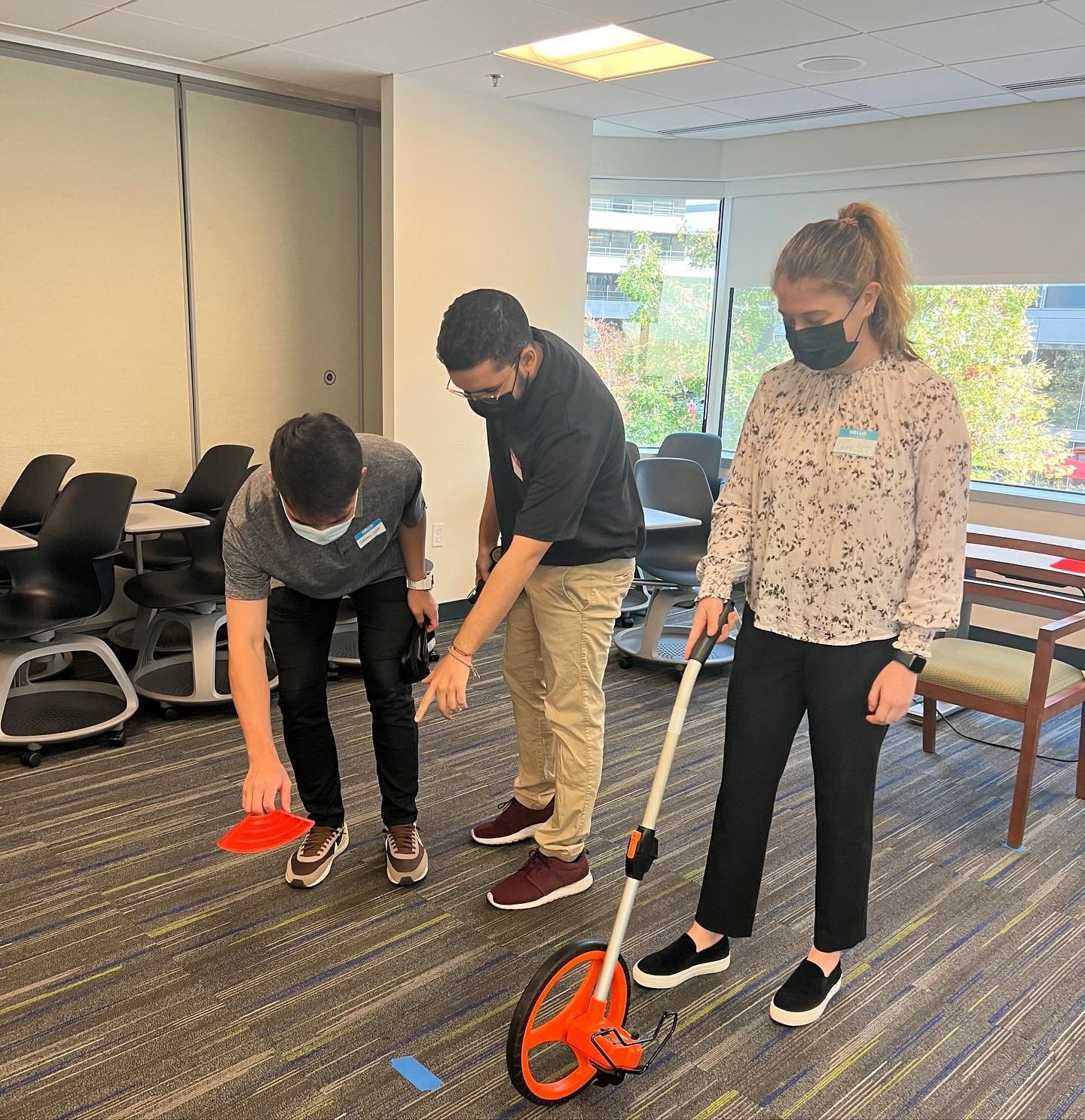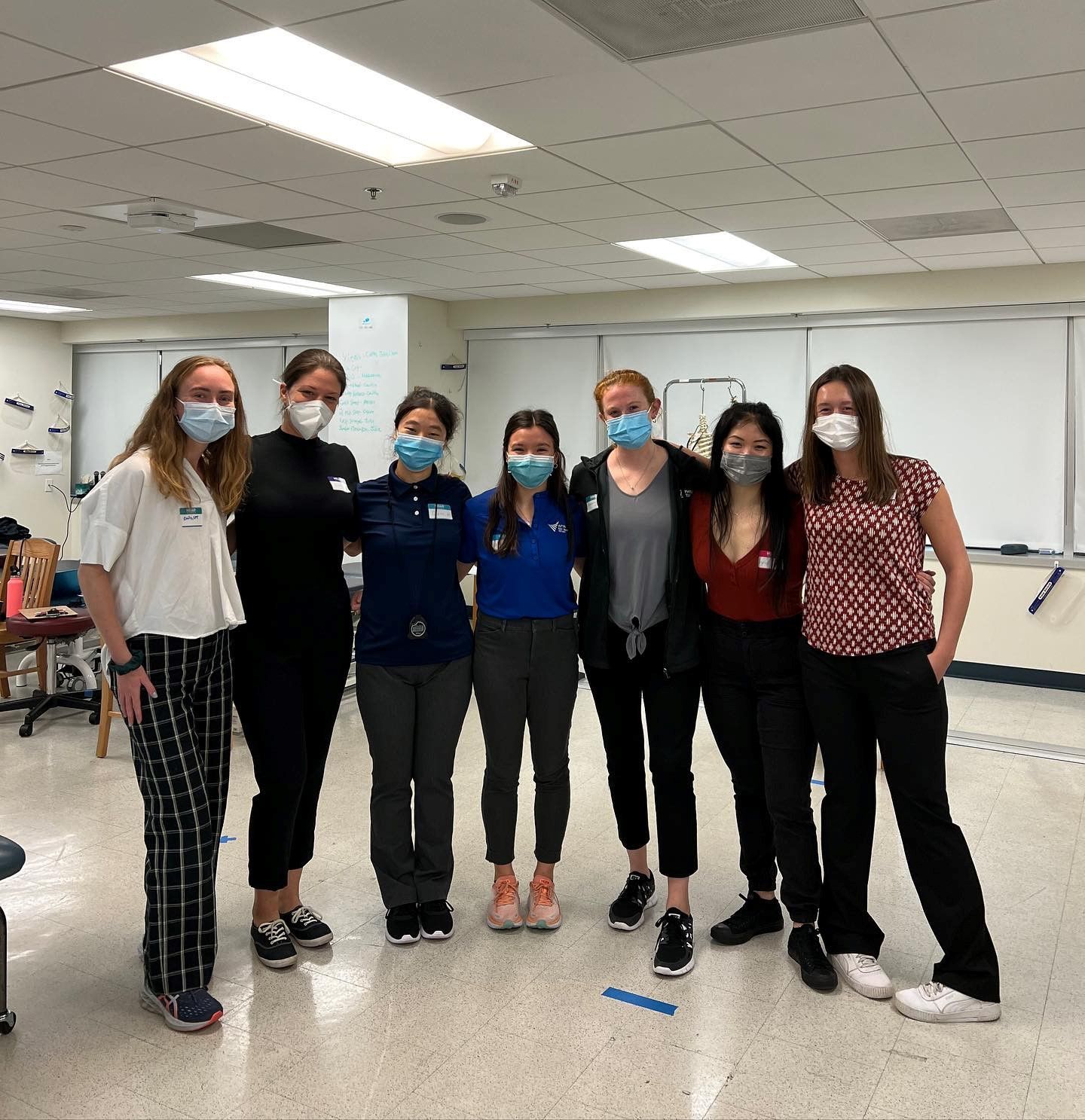A little-known fact about a physical therapy program is that it doubles as acting school. Students practice clinical skills with each other, which requires role playing different patient diagnoses. Implementing PT skills outside the classroom is usually reserved for clinical experiences, however, not any more.
First-year Doctor of Physical Therapy (DPT) students at the George Washington University (GW) School of Medicine and Health Sciences are putting clinical skills into practice through the newly formed Engaged Department. The Engaged initiative provides service learning to students and Community Based Participatory Research
Tesia Sikorsky, a second-year DPT student, helped GW faculty create a mobility screening tool that was used during the inaugural event last fall. “The main aspects of the screening included static balance, dynamic balance, balance with a cognitive factor, speed, and endurance,” Sikorsky said. Before the screening, participants were assessed for fall risk and checked for cardiovascular abnormalities.
The screening was done with a new GW DPT community partner: Foggy Bottom West End Village (FBWEV), an organization that provides resources to help residents age healthfully in their community. Students and faculty collaborated to complete a mobility screen to assess each participant’s functional abilities inside their home and within the community. The event gave first-semester students an early opportunity to work with community members. Students practiced skills such as goniometry, assessing vitals, patient communication, performing outcome measures, and participating in research -- all core concepts in first-semester courses.
Samantha Hummel, a first-year DPT student, appreciated the early practice. “It was a great opportunity to use our skills from class in a real-life setting,” Hummel said. “The participants were engaged in the tests and it was exciting to see them learn with us.”
As part of the initiative, FBWEV members will return to the GW campus for additional screenings performed by students in their fifth semester during the “Management of the Aging Adult” course. Students said they were already looking forward to the next screening so they can continue working with residents, expand their clinical skills, and strengthen the FBWEV partnership.
“The best type of practice comes from working with real life patients,” Sikorsky said. “Practicing with other DPT students is an important part of learning, but as classmates, we know how to be an ideal patient for one another, which can inhibit our learning process.”
FBWEV member Nadia Taran has been participated in various mobility screenings since 2013, and looks forward to each one. “Unlike medical appointments, there’s a sense of engagement and discovery with the students,” Taran said. “My scores have given me useful information, and motivated me to continue working on balance, strength, and flexibility activities.”

